- europages
- >
- COMPANIES - SUPPLIERS - SERVICE PROVIDERS
- >
- plant construction
Results for
Plant construction - Import export
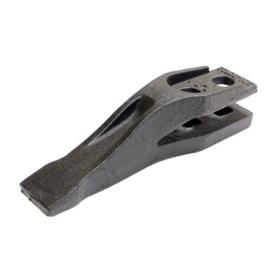
TRP FORGE METAL
Turkey
Forged Bucket Teeth for Construction Plant and Equipment
Request for a quote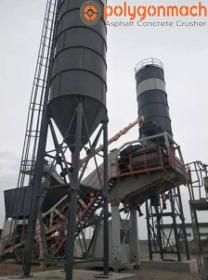
POLYGONMACH MAKINE SANAYI VE TICARET LTD STI
Turkey
A 5000-ton bolted-type cement silo is a specially designed storage structure to contain 5000 tons of bulk cement or other powdered materials used in construction and industrial processes. These silos are necessities in concrete batching plants, construction sites, and industrial facilities where huge volumes of cement shall be stored safely and made readily available for use in production processes. Made of strong materials like steel, a cement silo of 5000 tons capacity has a strong cylindrical body and a support structure that needs to be resilient enough to be able to bear the weight of the material being stored. One bolted type cement silo of 5000 tons of massive storage capacity enables storing a large quantity of cement at one site, therefore feeding ongoing concrete production or construction or manufacturing operations, very much efficiently on a large scale. In the view of strength and great storage capacity
Request for a quote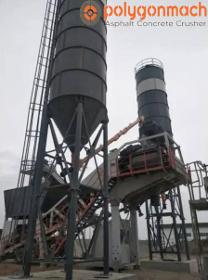
POLYGONMACH MAKINE SANAYI VE TICARET LTD STI
Turkey
The 1000-tone Bolted Type Cement Silo is a specially designed storage specially designed storage container for holding bulk cement or other powdered materials, 1000 tons, normally used in construction and industrial applications. These silos form one of the main units of a concrete batching plant, construction site, and manufacturing facility where such large amounts of cement must be stored safely and made readily available for immediate production processing. Produced from strong materials, such as steel, the 1000-ton cement silo offers safe and efficient storage that ensures the quality and nature of the retained materials are preserved. A 1000-ton silo facilitates the storage of a large quantity of cement on-site so as to effectively support continuous production of concrete, construction works, or manufacturing. This large capacity allows the systems to cater for heavy production in big projects and large industrial set-ups.
Request for a quote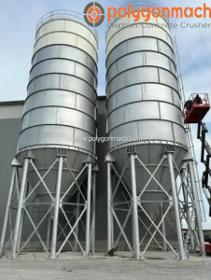
POLYGONMACH MAKINE SANAYI VE TICARET LTD STI
Turkey
The 3000-ton bolted-type cement silo is a custom storage structure designed to contain about 3000 tons of bulk cement or other powdered material used in construction and industrial applications. Such silos form an important part of the concrete batching plant, construction project site, and overall plant or factory that requires storing large enough quantities of cement safely and making it accessible enough to feed the production process. Being made from such durable materials, steel, a 3000 ton cement silo features a strong cylinder body with a support structure strong enough to hold the weight of the stored material. A 3000-ton silo presents vast storage capacity for the storage of huge volumes of cement on-site and therefore allows large-scale continuous alternative of the concrete-making process, construction activities, or manufacturing operations.
Request for a quote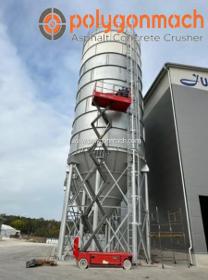
POLYGONMACH MAKINE SANAYI VE TICARET LTD STI
Turkey
A 2000-tonne bolted-type cement silo is a highly dedicated storage unit designed for storing up to 2000 tonnes of bulk cement or other powder materials designed for building or industrial purposes. These silos form an integral part of concrete batching plants, construction sites, and industrial facilities where a huge quantity of cement needs to be stored safely and also has to be made readily available for production processes. Having been fabricated from steel, the 2000-ton cement silo will easily store the material inside without any contamination risks, thereby guaranteeing quality and integrity of the material. A 2000-ton silo has huge capacities that are instrumental in storing cement at the site, which then can constantly feed huge quantities into concrete production, construction, and manufacturing processes.
Request for a quote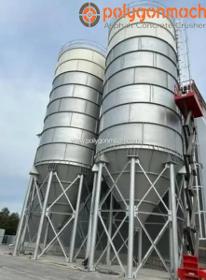
POLYGONMACH MAKINE SANAYI VE TICARET LTD STI
Turkey
A 300-ton bolted-type cement silo is a special storage container that can contain up to 300 tons of bulk cement or anything else similar to it, in the powdered form, basically for the construction and industrial tools. These silos are very crucial elements in concrete batching plants, construction sites, manufacturing facilities, or any other place where great quantities of cement should be stored properly and easily accessible for production processes. Made of strong construction materials like steel, this 300-ton cement silo provides for safe and reliable storage of this vital construction material, ensuring the integrity and quality of the cement is maintained. A 300-ton silo holds a lot of product, providing a huge reservoir of cement on-site to keep concrete production, construction, or manufacturing running at a continuous flow.
Request for a quote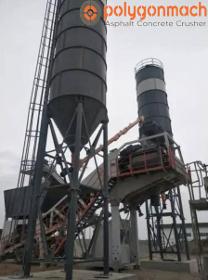
POLYGONMACH MAKINE SANAYI VE TICARET LTD STI
Turkey
A 150-ton bolted type cement silo is a specially manufactured storage container for holding in the range of 150 tons of bulk cement or any other powder materials that are applied in construction purposes and industries. These silos are an integral part of the entire batching plant, construction, or manufacturing facility, where large quantities of cement should be maintained safely but ready and available to be used in the manufacturing process at any time. Made of durable materials, such as steel, the 150-tonne cement silo provides a safe and sturdy storage facility for bulk materials, thereby ensuring the quality and integrity of any material being stored. A 150-ton silo can hold huge volumes of cement on-site to contribute to the continuous production of concrete, construction, or manufacturing activities as required.
Request for a quote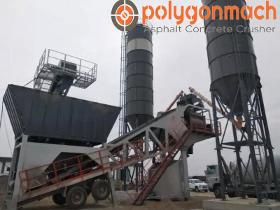
POLYGONMACH MAKINE SANAYI VE TICARET LTD STI
Turkey
A 75 ton bolted type cement silo is a specialization storage vessel that can stockpile up to 75 tons of bulk cement or another kind of powder material mostly used in construction and industrial processes. Concrete batching plants, construction sites, and manufacturing facilities are the parts in these big quantities of cements to be stored and safely kept yet easily available in production lines. The bolt type silos are constructed in a way that these can be put up and taken down with ease, making it versatile in deciding the location placement and if it's relocating from place to place. A 75-ton cement silo, normally constructed through sturdy materials like steel, safely contains bulk products and eliminates them from every environmental factor that may become a hazard to the product quality, like moisture and contamination. A 75-ton bolted type cement silo works by loading bulk cement in the inlet port on top
Request for a quote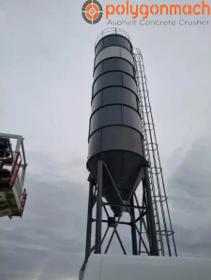
POLYGONMACH MAKINE SANAYI VE TICARET LTD STI
Turkey
In simple words, a bolted-type cement silo starres a bulk amount of 30 tons of cement in powdered bulk form for the need of construction and other various industries. This specific setting of silo is commonly used in most concrete batching plants, construction sites, and manufacturing shops that require a moderate amount of cement storage capacity. The bolted silo construction design is thus conceived in such a way that it can easily be mounted or unmounted, meaning it enables the possibility of a rather large scale of adjustment as well as relocation of places. Such silos are usually built from very durable materials; for example, steel is used to protect the contents against foreign bodies and moisture, etc., hence in fact having a long lifespan under different effects.
Request for a quote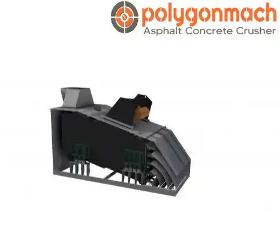
POLYGONMACH MAKINE SANAYI VE TICARET LTD STI
Turkey
Introduction of Asphalt Vibrating Screen An asphalt vibrating screen is one of the most critical machines at asphalt-producing plants and in many construction locations. Its role is to filter and perform size classification of aggregates, thus ensuring conformance of materials used in asphalt mixtures to specified requirements. This screening process lies at the heart of producing quality asphalt that can perform and last in road construction projects. The vibrating screen efficiently sorts aggregates to ensure the right consistency and composition of the final asphalt mixture, which is an important requirement in a paved surface for strength and durability. Application of an asphalt vibrating screen does not just act in the role of material filtering, but rather, it directly affects the quality of the asphalt products realized. Without proper screening, uneven gradation may result in the product mixture, and this unevenness can result in weaknesses in the pave.
Request for a quote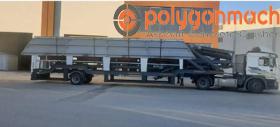
POLYGONMACH MAKINE SANAYI VE TICARET LTD STI
Turkey
A Mechanical Stabilization Plant: What Is It? In order to enhance the qualities of soil and make it more suitable for constructing infrastructure such as roads highways and airport runways the construction industry uses mechanical stabilization plants. In order to improve the strength durability and load-bearing capacity of the soil binding agents like lime cement or foamed bitumen are blended into the soil. The objective is to produce a uniform stable material that can back the building of long-lasting structures and surfaces. In situations where the native soil lacks the necessary qualities for construction mechanical stabilization plants are crucial. By modifying the properties of the soil these plants guarantee that the foundation is robust enough to support large loads and withstand environmental influences.
Request for a quote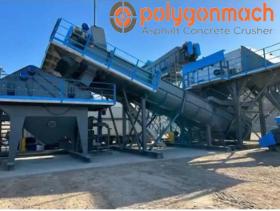
POLYGONMACH MAKINE SANAYI VE TICARET LTD STI
Turkey
A Sand and Rubble Recycling Plant is a plant that processes and reuses demolished concrete, bricks, asphalt, and other such wastes to produce recycled products like aggregates and sand for use in construction projects. These plants used to recycle materials carry application in cities for the collection of wastes, sorting, breaking, screening, washing, and grading to get a product that may have the value for the customers. The reason may be that the aggregates produced in the plants can be used in construction by substitution for aggregates, which will lead to reduced demand for new aggregate resources and less waste landfill. As well, the recycled sand derived from the rubble may be used for applications such as construction, landscaping, and road works, providing a cleaner alternative yet ensuring the sustainability of the construction industry.
Request for a quote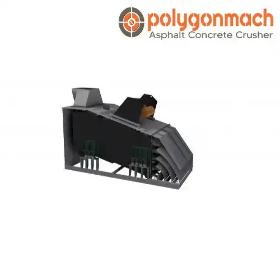
POLYGONMACH MAKINE SANAYI VE TICARET LTD STI
Turkey
An asphalt vibrating screen is one of the most critical machines at asphalt-producing plants and in many construction locations. Its role is to filter and perform size classification of aggregates, thus ensuring conformance of materials used in asphalt mixtures to specified requirements. This screening process lies at the heart of producing quality asphalt that can perform and last in road construction projects. The vibrating screen efficiently sorts aggregates to ensure the right consistency and composition of the final asphalt mixture, which is an important requirement in a paved surface for strength and durability. Application of an asphalt vibrating screen does not just act in the role of material filtering, but rather, it directly affects the quality of the asphalt products realized. Without proper screening, uneven gradation may result in the product mixture, and this unevenness can result in weaknesses in the pave.
Request for a quote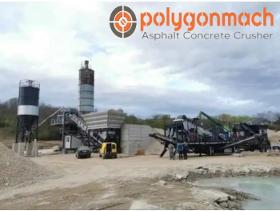
POLYGONMACH MAKINE SANAYI VE TICARET LTD STI
Turkey
A Mobile Wheeled Crushing Screening Plant is a versatile and mobile plant used in various industries for crushing, screening, and sorting operations. This type of plant is mounted on wheels for easy transportation between various job sites and, therefore, allows for efficient on-site processing of materials. A mobile, wheeled processing plant performs the main function of transforming stones, minerals, or construction waste into given dimensions according to the need and separating and screening processed material with respect to given specifications. These are high-turnover, critical plants in the construction, mining, and recycling industries, in which flexibility and mobility are important for maximizing operational efficiency and reducing transportation costs.
Request for a quote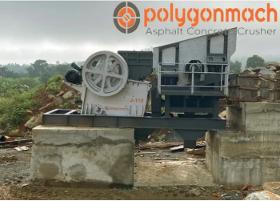
POLYGONMACH MAKINE SANAYI VE TICARET LTD STI
Turkey
350-500 tph basalt crushing and screening plants have been introduced in special place, thanks to its ability to process the basalt and produce the required aggregate for making various kinds of construction work and meets an operating capacity of 350-500 tons per hour. It is associated with machinery and equipment that are in operation for basalt, one of the toughest durable volcanic stones. These plants are mainly designed to crush large basalt stones into smaller fragments and then screen them in a way to prepare good quality aggregates that are extremely versatile and suitable for a wide range of construction, infrastructure, and industrial projects. By helping to produce robust materials efficiently for the crushing of basalt, these plants correspond to construction projects requiring strong, dependable aggregates to survive heavy loads and harsh environmental conditions.
Request for a quote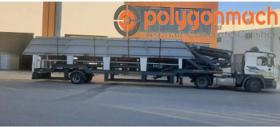
POLYGONMACH MAKINE SANAYI VE TICARET LTD STI
Turkey
In order to enhance the qualities of soil and make it more suitable for constructing infrastructure such as roads highways and airport runways the construction industry uses mechanical stabilization plants. In order to improve the strength durability and load-bearing capacity of the soil binding agents like lime cement or foamed bitumen are blended into the soil. The objective is to produce a uniform stable material that can back the building of long-lasting structures and surfaces. In situations where the native soil lacks the necessary qualities for construction mechanical stabilization plants are crucial. By modifying the properties of the soil these plants guarantee that the foundation is robust enough to support large loads and withstand environmental influences. The resulting stabilized soil serves as a dependable base for long-lasting infrastructure and is utilized for a variety of purposes including embankments and road bases and subgrades.
Request for a quote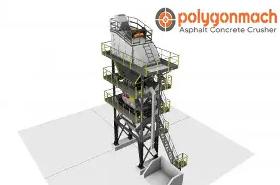
POLYGONMACH MAKINE SANAYI VE TICARET LTD STI
Turkey
With the PBA 320–400 TPH Stationary Asphalt Plant from Polygonmach you can experience the Ultimate in Efficient Asphalt Production The pinnacle of productivity and innovation in asphalt manufacturing can be found in Polygonmachs PBA 320–400 TPH Stationary Asphalt Plant. Large-scale construction projects are the target market for this cutting-edge machinery which streamlines operations and maximizes the entire production process to deliver superior results. This page examines PBA 320-400 TPH Stationary Asphalt Plants key features assembly process specifications and unique selling points. One type of high-capacity equipment used to create high-quality asphalt for large construction projects is the PBA 320–400 TPH Stationary Asphalt Plant. The robust requirements of major infrastructure projects like highways airports and industrial sites are what this plant is designed to withstand. It can generate between 320 and 400 tons of asphalt per hour.
Request for a quoteDo you sell or make similar products?
Sign up to europages and have your products listed
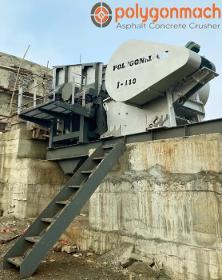
POLYGONMACH MAKINE SANAYI VE TICARET LTD STI
Turkey
A 50-100 TPH dolomite crushing screening plant is one constructed to process dolomite ore into various sizes of aggregates that are used in the construction. "TPH" represents "tons per hour"; the plant has the ability and capacity to deal with between 50 and 100 tons of dolomite ore every hour. Dolomite is a widely used carbonate calcium magnesium carbonate mineral in construction. Basic work undergone by the plant includes the crushing and screening of dolomite in an efficient manner to produce different sizes of aggregates for its concrete, road bases, and other construction uses.
Request for a quote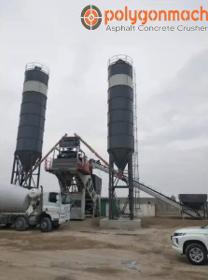
POLYGONMACH MAKINE SANAYI VE TICARET LTD STI
Turkey
A 50-ton bolted-type cement silo is an industrial storage container designed for the storage of up to fifty tons of bulk cement or other powdered materials utilized in building and industrial operations. These silos form very important units in concrete batching plants both at construction sites and in manufacturing units, where bulk storage of cement is required for production processes. The bolted type construction of these silos allows them to be assembled and dismantled with a fair degree of ease, thereby offering a lot of flexibility in terms of their installation and, if necessary, their relocations. The 50-ton silo, made with hard-wearing materials, such as steel, offers safe storage of bulk materials against perishity from moisture, contamination, and other environmental factors that deteriorate the quality of materials. The 50-ton bolted type cement silo works with the bulk cement loaded into the silo through an inlet port at the top, after which it waits for the end use.
Request for a quote
POLYGONMACH MAKINE SANAYI VE TICARET LTD STI
Turkey
The PAC 45m3/h Ant Site Type Plant is a concrete batching plant with a specified on-site production of concrete at 45 cubic meters per hour, with the ability to mix dry constituents like aggregate, cement, water, and admixture. The goal is to get a homogeneous concrete mixture right at the construction site. The plant is described as "Ant Site Type" to mean that it can be transferred and carried to any site, hence giving the construction crew the freedom to produce concrete at any place within the job site. Due to its high output capacity of 45 cubic meters of concrete per hour, the PAC 45m3/h Ant Site Type Plant will be highly effective for medium and larger-sized projects, where a large volume of concrete production is required on site in order to get the work done in an effective and efficient manner. PAC 45m3/h Ant Site Type Plant goes on with a continuous process of metering, mixing, and controlling the ingredients for the required output of concrete.
Request for a quote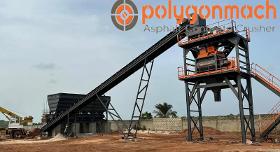
POLYGONMACH MAKINE SANAYI VE TICARET LTD STI
Turkey
The 240 m3/hours stationary concrete batching plant is an industrial facility, primarily engaged in construction, designed for the production of a large quantity of concrete at the pace of 240 cubic meters per hour. This type of plant is appropriate for large construction projects where a great and regular quantity of concrete supply is called for to adequately meet the demand of the project. The standard input includes the cement silos, the aggregate bins, a cement mixer, and advanced control systems, all combining to deliver accurate blending of raw materials that include cement, aggregates, water, and other additives in very specific proportions. The great production capacity of 240m3/hour stationary concrete batching plant makes it an excellent instrument for projects requiring a fair amount of constantly produced concrete to support various construction applications.
Request for a quote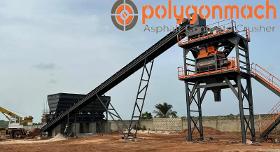
POLYGONMACH MAKINE SANAYI VE TICARET LTD STI
Turkey
A stationary concrete batching plant of 120 m³/h is a construction facility that helps in producing high quantities of concrete, i.e. 120 cubic meters, each hour from the output. It is a plant used in large construction sites or just about any site that requires huge levels of concrete output within a short timeline. It brings together the following raw materials: cement, aggregates, water, and additives in designed proportions in order to produce high-quality concrete mixes that will meet respective specification requirements for construction. With the inclusion of equipment such as a set of cement silos, aggregate bins, a cement mixer, and a control system for a 120 cum/hour production unit, we ensure that continuous production of concrete meets the demand that is usually experienced in large construction projects. These include the cement silo, aggregate bins, and control system
Request for a quote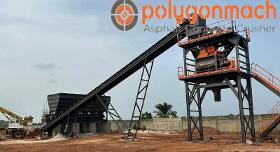
POLYGONMACH MAKINE SANAYI VE TICARET LTD STI
Turkey
A 100m3/hour stationary concrete batching plant is a rather sophisticated construction facility for producing concrete at a very high rate of 100 cubic meters per hour. This plant is typically used in large construction projects wherein the consumption and volume demand of concrete are notably high. The plant mixes various raw materials—cement, aggregates, water, and additives—in correct proportions to yield high-quality concrete mixes that can be used in numerous construction applications. A 100m3/hour concrete batching plant essentially comprises cement silos, aggregate bins, a cement mixer, and an advanced control system to continuously feed in concreting. These plants are equipped with advanced technology and automation, which can hold up to accuracy in batching and mixing, exercise effective control of the mixing process, and regulate the discharge of ready-mixed concrete. A stationary concrete batching plant of 100m3/hour, due to its high capacity and efficiency
Request for a quote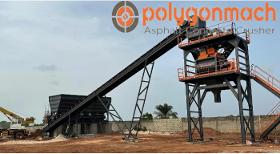
POLYGONMACH MAKINE SANAYI VE TICARET LTD STI
Turkey
The 240 m3/hours stationary concrete batching plant is an industrial facility, primarily engaged in construction, designed for the production of a large quantity of concrete at the pace of 240 cubic meters per hour. This type of plant is appropriate for large construction projects where a great and regular quantity of concrete supply is called for to adequately meet the demand of the project. The standard input includes the cement silos, the aggregate bins, a cement mixer, and advanced control systems, all combining to deliver accurate blending of raw materials that include cement, aggregates, water, and other additives in very specific proportions. The great production capacity of 240m3/hour stationary concrete batching plant makes it an excellent instrument for projects requiring a fair amount of constantly produced concrete to support various construction applications.
Request for a quote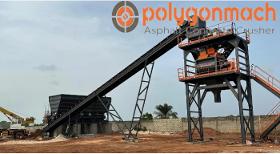
POLYGONMACH MAKINE SANAYI VE TICARET LTD STI
Turkey
A stationary concrete batching plant of 120 m³/h is a construction facility that helps in producing high quantities of concrete, i.e. 120 cubic meters, each hour from the output. It is a plant used in large construction sites or just about any site that requires huge levels of concrete output within a short timeline. It brings together the following raw materials: cement, aggregates, water, and additives in designed proportions in order to produce high-quality concrete mixes that will meet respective specification requirements for construction. With the inclusion of equipment such as a set of cement silos, aggregate bins, a cement mixer, and a control system for a 120 cum/hour production unit, we ensure that continuous production of concrete meets the demand that is usually experienced in large construction projects. These include the cement silo, aggregate bins, and control system, which allow for the mixing process in which exact raw material proportions are combined to generate
Request for a quote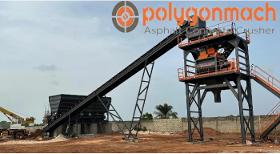
POLYGONMACH MAKINE SANAYI VE TICARET LTD STI
Turkey
A 100m3/hour stationary concrete batching plant is a rather sophisticated construction facility for producing concrete at a very high rate of 100 cubic meters per hour. This plant is typically used in large construction projects wherein the consumption and volume demand of concrete are notably high. The plant mixes various raw materials—cement, aggregates, water, and additives—in correct proportions to yield high-quality concrete mixes that can be used in numerous construction applications. A 100m3/hour concrete batching plant essentially comprises cement silos, aggregate bins, a cement mixer, and an advanced control system to continuously feed in concreting. These plants are equipped with advanced technology and automation, which can hold up to accuracy in batching and mixing, exercise effective control of the mixing process, and regulate the discharge of ready-mixed concrete.
Request for a quote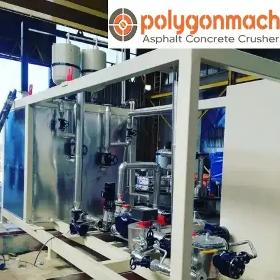
POLYGONMACH MAKINE SANAYI VE TICARET LTD STI
Turkey
A 50-ton capacity horizontal bitumen tank is a specially designed storage tank for holding bitumen, which is a highly thick and viscous liquid purified from the refining of crude oil. It is used in many industrial processes, particularly in asphalt-making for laying roads. These tanks form an integral part of asphalt plants, road-construction sites, and other such industrial locations where a continuous and reliable flow of bitumen is required. The horizontal design allows efficient storage and easy access. This makes the tanks handy in operations involving loading and offloading of bitumen several times. Its ability to hold up to 50 tons of bitumen ensures that vast volumes of such material may be at one's disposal, ensuring production runs uninterruptedly while minimizing the time spent refilling it. These tanks are thus very important in the sense that they maintain the bitumen at the best temperature and condition to ensure that its quality and flowability are maintained.
Request for a quote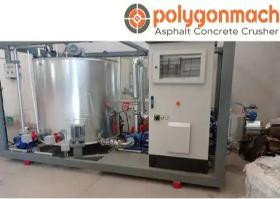
POLYGONMACH MAKINE SANAYI VE TICARET LTD STI
Turkey
A 30-ton horizontal bitumen tank is a specially designed storage unit for handling and storing bitumen, which is a heavy and rather viscous petroleum-based material. These are essential tanks in the industries involved in the use of bitumen, such as asphalt production plants, road construction sites, and bitumen distribution facilities. The horizontal design of a tank offers a number of practical advantages, including easier maintenance, access for cleaning inner parts, efficient heating and insulation systems that maintain the bitumen at working temperature. A 30-ton horizontal bitumen tank ensures a continuous and reliable supply of bitumen to serve in road paves, waterproofing, or other industrial processes. Thus, the tanks are essential in the continuity of operations where bitumen is used as part of the major material by sustaining it in workable condition.
Request for a quote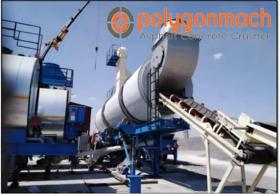
POLYGONMACH MAKINE SANAYI VE TICARET LTD STI
Turkey
The MCA 100-120 tph Continuous Asphalt Plant is the technology pioneer in asphalt production, offering best-in-class efficiency and performance for medium to high-volume projects. This continuous asphalt plant is durable and fully equipped with advanced characteristics that enable quality continuous asphalt mixture production. It offers a range of production capacities from 100 to 120 tons per hour, which deals with a wide variety of road construction applications. This plant is designed for the production of asphalt for any requirements with the ultimate accuracy and consistency of results. The power-packed MCA 100-120 tph plant, standing out to be the strongest of its kind in construction and ultra-modern technology, is suitable for all projects from highways to luxuriant urban roads and on to industrial zones. It can produce numerous sorts of asphalt mixtures, including those needed for base, binder, and surface courses.
Request for a quoteResults for
Plant construction - Import exportNumber of results
43 ProductsCountries
Company type
Category
- Concrete preparing - machinery and equipment (26)
- Tar and asphalt - construction materials (6)
- Concrete constructions (3)
- Construction machinery (3)
- Crushing and grinding machinery (3)
- Bitumens (2)
- Compactors and crushers (1)
- Industrial washing facilities (1)
- Mechanical surface treatment - machinery (1)
- Waste treatment and recycling - machines and installations (1)